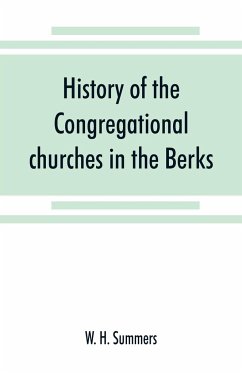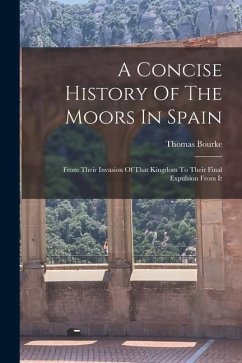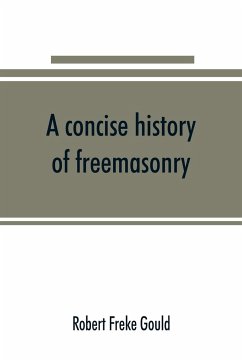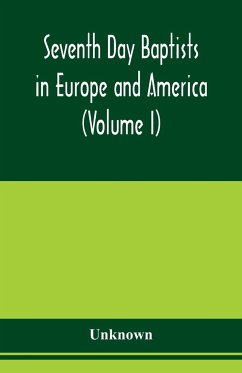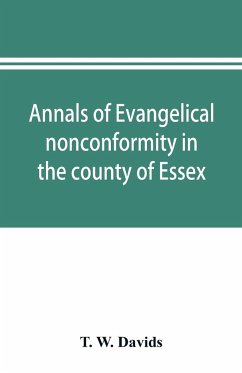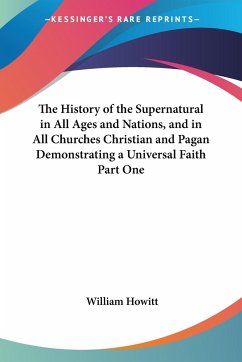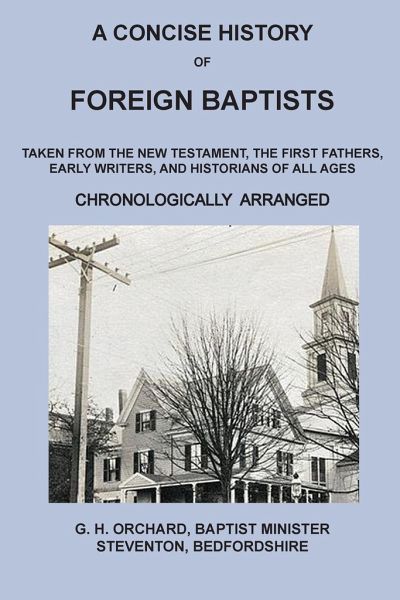
A Concise History of Foreign Baptists
Taken From the New Testament, The First Fathers, Early Writers, and Historians of All Ages
Versandkostenfrei!
Versandfertig in 1-2 Wochen
26,99 €
inkl. MwSt.

PAYBACK Punkte
13 °P sammeln!
This is a reprint of a work published in 1838 regarding Baptist History. The reason for the following work by Dr. Orchard was to counter comments by respectable men that Baptists did not originate until Dr. William Carey or the Reformation. After considerable research, he became fully satisfied; and established the proof of what Robinson conjectured, that "the English Baptists, contending for the sufficiency of Scripture, and for Christian liberty to judge of its meaning, can be traced back in authentic documents, to the firs t Nonconformists and to the Apostles." This is a reprint of a work p...
This is a reprint of a work published in 1838 regarding Baptist History. The reason for the following work by Dr. Orchard was to counter comments by respectable men that Baptists did not originate until Dr. William Carey or the Reformation. After considerable research, he became fully satisfied; and established the proof of what Robinson conjectured, that "the English Baptists, contending for the sufficiency of Scripture, and for Christian liberty to judge of its meaning, can be traced back in authentic documents, to the firs t Nonconformists and to the Apostles." This is a reprint of a work published in 1838 regarding Baptist History. Many like to hold a book in their hands to read, so in that tradition, The Old Paths Publications has reprinted this valuable book concerning the Baptists. The reason for the following work by Dr. Orchard was to counter comments by respectable men that Baptists did not originate until Dr. William Carey or the Reformation. After considerable research, he became fully satisfied, and established the proof of what Robinson conjectured, that "the English Baptists, contending for the sufficiency of Scripture, and for Christian liberty to judge of its meaning, can be traced back in authentic documents, to the first Nonconformists and to the Apostles." In the course of Dr. Orchard's reading, materials so accumulated on his hands as to enable him to furnish facts sufficient to make a compendious history of the Baptists in variious provinces; from their rise, to their being scattered or extinguished; and which facts are submitted in the following pages. Nor does he fear contradiction, since he has taken the most accreditied historians, and have preferred, in most instances, the testimonies of men hostile to his communion. Dr. Orchard said, "The enduing facts, with many more, were selected to satisy my own inquiries, but when I had placed them in connective form, I thought they might be useful to others similarly circumstanced, and might render some aid to inquiring youths in our churches



